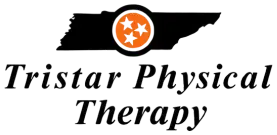Table of Contents
Introduction
Pelvic health physical therapy is a type of physical therapy that treats issues affecting male and female reproductive organs. This approach has been around for over 40 years and has helped many men and women with conditions that affect their pelvic area. The pelvic therapists at https://tristarpt.com/ are experts in treating conditions related to the pelvic floor muscles, such as incontinence, pain, and weakness.
What is Pelvic Health?
Pelvic health refers to the management of male and female reproductive organs, urinary system, and digestive system. This area of practice helps individuals embrace physical and mental health. The subset of physical therapy that treats issues affecting the pelvic area was founded by Elizabeth Noble and is now recognized by the American Physical Therapy Association (APTA). There are over 3,700 practitioners in this field of the health sciences.
Conditions Treated by Pelvic Health Physical Therapy
Pelvic health specialists treat a wide array of conditions, including:
- Anal spasms
- Coccyx (tailbone) pain
- Constipation/slow transit digestion
- Interstitial cystitis
- Low back, hip and sacroiliac (SI) joint pain
- Organ prolapse
- Overactive bladder
- Painful intercourse
- Pelvic floor tightness
- Pelvic floor weakness and incontinence
- Pelvic pain syndrome
- Pregnancy and postpartum conditions
The pelvic floor muscles play an important role in supporting the bladder, colon, rectum, and sex organs. If these muscles are not functioning well, uncomfortable symptoms can occur.
Dyspareunia and Vaginismus
Two conditions tied to the health of the pelvic area are dyspareunia and vaginismus. Dyspareunia causes pain during sexual activity, while vaginismus causes involuntary muscle spasms in the lower part of the vagina. Dyspareunia and vaginismus can cause painful intercourse.
Sandi Smith, a pelvic therapist at https://tristarpt.com/ , states that at least 30% of women experience painful intercourse during their lives. Researchers do not fully understand what causes these conditions. However, Sandi notes that more often than not, it is simply a set of muscles that need proper stretching. Physical therapy treatment for these conditions includes proper stretching, relaxation, and manual treatments. Each patient receives a personalized treatment plan designed for their specific situation.
Constipation
Chronic constipation may not often be considered a typical physical therapy diagnosis. However, pelvic health PT may help with guidelines for food choices, patient education on digestive health, proper relaxation and stretching, and self-care techniques. Pelvic floor muscles that are tight may contribute to poor elimination. Sandi says this is a condition that can improve considerably with the expertise of a pelvic floor specialist.
Incontinence
There are three types of bladder incontinence: stress incontinence, urge incontinence, and mixed incontinence. Incontinence is the inability to control bowel and bladder functions, and it is often associated with pelvic health muscles. One in three women and most men after prostate removal experience incontinence. Treatment of this condition by a pelvic floor PT includes breathing and coughing patterns, education on lifestyle changes, and instruction on key goals for treatment.
Seeing a pelvic health therapist begins with a basic orthopedic evaluation and examination of the pelvic floor muscles. An internal exam is typically involved and is performed without the use of a speculum used by OB/GYNs. The exam is geared toward the patient’s individual comfort level.
Your physical therapist will learn more about your symptoms during this visit. You may undergo certain movements and exercises to determine the strength and coordination of your pelvic floor muscles, including biofeedback, electrical stimulation to ease muscle spasms and pelvic pain, kegels to relax and contract the pelvic floor muscles, and trigger point therapy that puts pressure on the body to loosen tight muscles.
Each patient receives a home exercise plan to continue the good work to improve their health at home. Treatment plans are highly individualized because everyone’s healthy journey is different, but you can count on having both internal and external therapies designed to strengthen your pelvic floor and alleviate the symptoms you’re having.
Conclusion
Ability Rehabilitation is committed to providing personalized care that helps individuals achieve their optimal level of function. Pelvic health therapy is often a crucial piece of this journey. If you’re struggling with any of the conditions discussed in this article, contact https://tristarpt.com/ today or call them at 423-317-7772. These pelvic health specialists will provide education and treatment plans tailored to your specific needs, giving you a new sense of empowerment and comfort.

